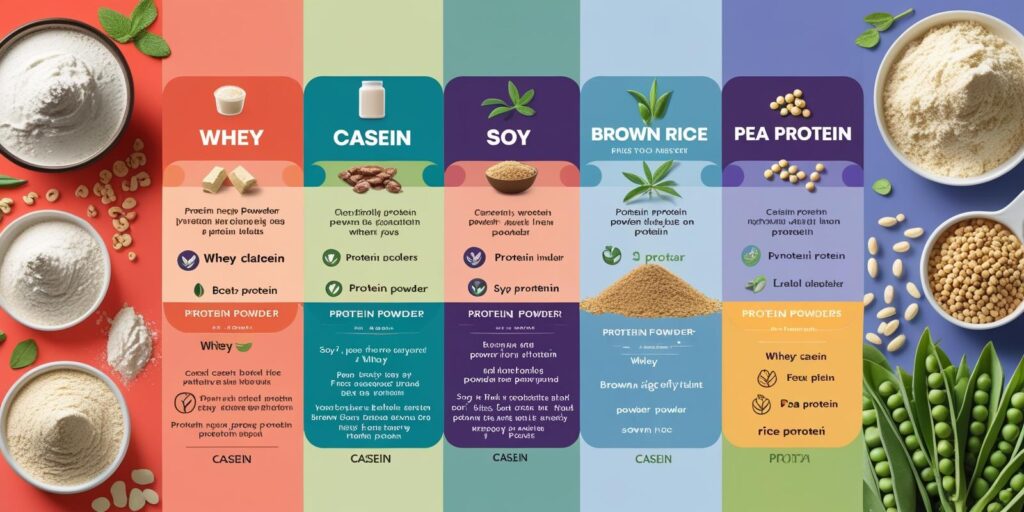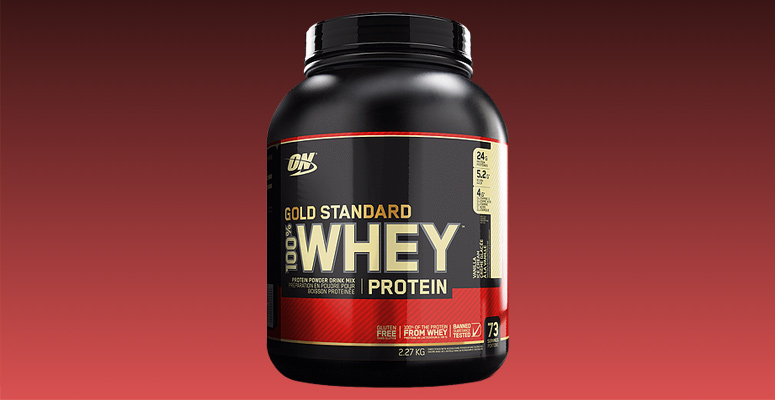Are you smitten by six-pack abs of celebs on TV?
Do you envy people with perfect cuts and abs?
Are you planning to buff up your muscle mass?
If yes, then it goes without saying that you are already started your research on protein powders and how to get the most of it. To get the perfectly chiseled body like celebs you might know that eating right and working out regularly is not enough. In fact, using the right protein powder is crucial to maximizing the results of your workout. Protein powders help the body to cope with heavy workouts and get the desired results as quickly as possible in a healthy manner.
Here are some of the most common protein powders and their benefits[1]:
– Protein is the building blocks of the body and is essential in building muscle
– Protein in the concentrated form (concentrated protein) helps the muscles to recover quickly from heavy exercise as it is absorbed quickly by the body
– The best protein powders are rich in digestive enzymes maximizing protein absorption
– Protein powders prevent muscle injuries from workouts
Due to all these benefits and more, protein powders are an irreplaceable component of bodybuilding. However, not all protein powders are worth the money as they do not provide the right combination of nutrients and supplements needed by the body post-workout.
Interestingly, with the number of protein powder brands and products increasing in the market, it has become difficult to identify which type of protein powder is the best. Most people do not know how to choose the best protein powder and end up getting the wrong one. However, looking at the list of ingredients and understanding the benefits of the base protein powder used in the product can give you a clear picture and help you pick the best protein powder.
How to Choose the Right Protein Powder?
To save you some time and trouble, we have compiled a list of the different types of protein powders along with its benefits and reasons for making it to the list.
Whey Protein
Whey protein is also known as the complete protein as it contains the nine essential amino acids that the human body cannot make on its own. Whey protein is made from cow’s milk and is the fastest among all other proteins to get absorbed into the bloodstream. Furthermore, it has the highest concentration of leucine, an amino acid, which is best needed to build muscle and is highly beneficial for people who workout regularly. Whey protein powder includes both whey protein isolate and whey protein hydrolysate which are lactose, high-protein powder with the ideal amount of carbohydrates and fats to ensure maximum muscle gain[1].
Ideally, the best time to consume whey is within an hour after a workout with an ideal dosage of 20g[2]. However, this dosage is for people that have the training or exercising regularly. Consult a doctor to ascertain the perfect dosage for you based on your routine, diet and body type.
Casein Protein
Casein Protein is the primary protein present in milk. Unlike whey protein, casein has a slow absorption rate which acts as a deterrent to building muscle quickly[3]. Nevertheless, its main advantage is that its effects on the body last for a longer duration compared to whey protein. Therefore, it is widely used as meal replacement shakes such as some people consume it for breakfast to fuel their daily routine or have it just before sleeping.
Soy Protein
Soy protein is a vegan protein; therefore, it is perfect for people who are lactose intolerant and those who are vegan. Defatted and dehulled ground soybeans are the main ingredients of soy protein. However, soy protein too, like casein protein, is not absorbed quickly. Instead, the digestion rate is even lower than that of casein protein. Nevertheless, soy protein contains the amino acids arginine and glutamine in greater quantity compared to other types of proteins. Regarding supplements for maintaining or building muscle derived from plants, it is considered highly effective.
Pea Protein
Yellow pea is the source of pea protein. One of the best attributes of pea protein is its digestibility compared to other proteins derived from plants. Therefore, it is an excellent option for someone with a weak digestive system, who is lactose intolerant or has problems with soy.
However, despite the advantages of pea protein, it also has a few glaring drawbacks. One of the most glaring drawbacks is that it does not have all the essential amino acids that casein protein and whey protein have. Therefore, it is not identified as a complete protein[3]. Nevertheless, combining pea protein with other proteins derived from plants will transform it into a complete protein.
Egg White Protein
As the name suggests, this protein powder is made from dried egg whites. One of the main qualities of egg white protein powder is that the digestion rate is higher than casein protein but lower than that of whey protein. However, egg white protein is less effective regarding the synthesis of muscle protein when compared to casein or whey protein. It is effective as a meal replacement substitute, especially before bed. Furthermore, egg white protein can be combined with another protein powder to ensure additional benefits. However, it is recommended that you consult a doctor before doing so to ensure that you have the perfect combination according to your body, diet, and routine.
Rice Protein
Rice Protein is a useful source of protein, especially for vegans. It may be surprising, but rice protein is an effective source of protein that not only helps in boosting muscle growth but also in reducing weight gain. A 2015 study published in the Journal of Sports Science & Medicine[3] suggested that the unique peptides present in brown rice protein help in reducing weight gain even more than soy protein. A common stigma attached to rice protein is that since it is made from rice, it is bound to be full of carbohydrates with minimal protein content. Interestingly, brown rice is an alternative to whey protein and contains essential amino acids in addition to 37% total protein[3]. However, brown rice protein does not contain all of the essential amino acids; thus, it has to be used with another source of essential amino acids to ensure that it provides maximum results.
Hemp Protein
Hemp Protein is a protein that is sourced from plants and is well-liked by vegans. However, people tend to prefer other protein powders over hemp protein. The reason that hemp protein is at the proverbial ‘bottom of the shelf’ meaning the protein content of hemp protein is the lowest when compared to other protein powders such as whey, casein, and soy. But hemp protein powder offers the advantage of providing a healthy dose of omega-3 fatty acids and fiber[3]. Thus, it can be combined with another protein powder to make it a complete protein powder. Hemp protein is particularly useful in completing your nutrient intake rather than boosting your protein intake.
To Whey or Not To Whey
The different types of protein powder might have given you enough idea to understand which protein powder will work best for you. There are a plethora of options when it comes to protein powders and other post-workout supplements, but not all benefit the user equally. As every protein powder has its own benefits and shortcomings, select the one that suits you the best based on your body, workout routine, and goal.
Most companies are simply trying to capitalize on the fervor of gym-enthusiasts by selling the dreams of the perfect body without talking about the work that goes into it. Simply taking protein powders is not enough! A rigorous workout routine is also important to get the best results. A combination of post-workout supplements along with regular exercise and weight lifting is essential to achieving the body of your dreams.
As far as choosing the best protein powder for yourself is concerned, you need to pay attention to every ingredient and what it does for the body to make the right choice. Each powder has its combination of helpful nutrients, but not every configuration of ingredients applies to everyone. For example, whey protein powder is more beneficial to someone who is actively looking to increase muscle growth, but if they are vegan, then they have to reconsider their choice. The bottom line is that you can find the best protein powder for you by doing thorough research of the ingredients present in them and knowing clearly what you need. You can even ask your nutritionist or dietician to help you choose the one that fits your body. Some trial and error might be required but it would not take too long to figure out the perfect protein powder for you!


